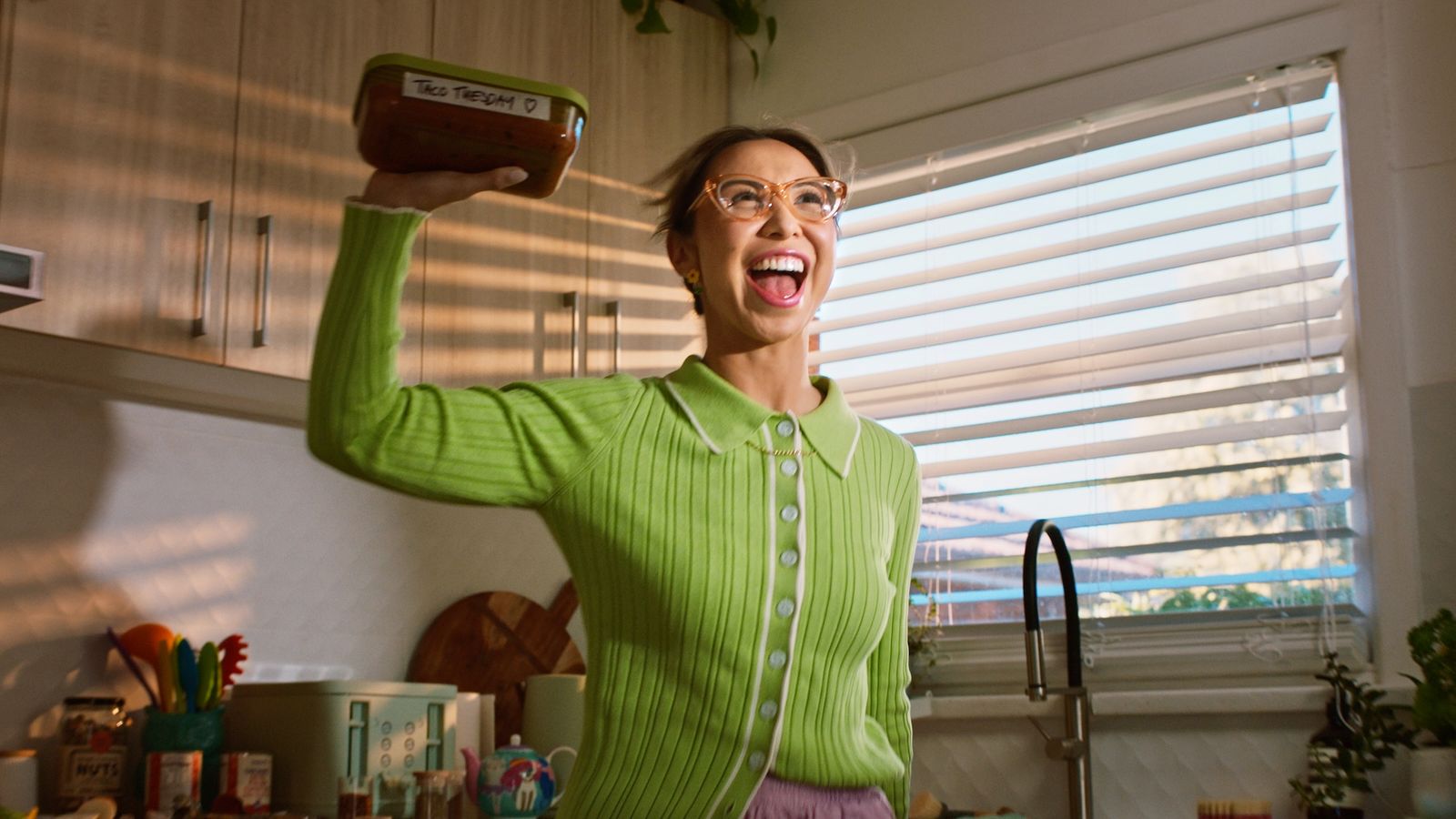
Food waste is silently impacting Australia on a monumental scale. Across the supply chain, every year, it’s responsible for 3% of our total greenhouse gas emissions, and it costs the economy $36 billion.
The shocking truth? Households are the biggest contributors, generating more waste than hospitality and supermarkets combined.
While this hits the environment hard, it also hits the bank balance: households lose $19 billion per year, at a time when one in five Australians struggles to put food on the table.
It’s an environmental, economic, and social crisis.
Despite decades of campaigns, the problem has grown. Research from End Food Waste Australia (EFWA) revealed why: Australians waste twice as much food as they think. The gap between perception and reality was staggering, and you can’t change what you don’t acknowledge.
Hopeful Monsters had a bold mission: Help reduce household food waste by 21% by 2030 through a nationwide behaviour change campaign that would make food waste feel personal, solvable, and worth caring about.
Using behavioural science, we knew this couldn’t be another guilt-laden sustainability lecture. We needed to reframe food waste from blame and shame to ownership and pride, from crisis to action. We needed to transform food scraps, leftovers and excess into something redemptive. With over 19 million households in play, the key was shifting everyday behaviour at scale.
This was a campaign designed not only to educate, but to empower every Australian household to cut food waste, help the planet and put money back into their pockets.
Led by behavioural scientist Dr Mark Boulet, EFWA went beyond surveys and commissioned a first-of-its-kind study using food diaries and bin audits. It revealed a huge blind spot: Australians wasted far more food than they believed.
To solve this problem hiding in plain sight, we needed to show Australians what they weren’t seeing.
Where other campaigns had focused on facts, drove fear, and left people feeling guilty, overwhelmed or in denial, we took a different, more light-hearted approach. We didn’t ask people to stop wasting food. We asked them to start unwasting it.
The Great Unwaste introduced a simple, sticky new behaviour: 'unwasting' - a reframe that positioned leftovers, wilted veg and soon-to-expire ingredients as everyday heroes.
No finger-pointing. No shame. Just small, satisfying wins anyone could be part of.
We built a collective identity - the Great Unwasters - and equipped people with seven easy habits to save food, money, and the planet.
Not another awareness push. A behaviour shift powered by optimism, not obligation.
Leftovers became possibilities. Scraps became solutions. "Ooh, two carrots and a zucchini? I can unwaste those!" became a household mantra.
We launched nationally across TV, digital, radio, print, social and OOH - reaching people in the moments food decisions are made.
The message “Are you wasting more than you think?” travelled fast, showing up from national news to TikTok. We got Australia talking and taking action - weighing waste and nailing pasta portions.
The campaign made unwasting feel smart, not shameful. We used mass-reach moments and behaviour-shifting nudges: outdoor placements by supermarket entrances, BVOD and radio during food prep hours, and digital content that offered seven easy, money-saving habits - from portion planning to fridge-first cooking - all proven to contribute to the mission, helping to cut methane emissions and save households money.
A central digital hub offered tools for households, councils, schools, businesses and community groups - with hundreds of local governments and industry partners joining the mission. Partnerships amplified our impact. Even Tanya Plibersek, Australian Minister for the Environment and Water, joined in, helping launch the campaign to the media and industry partners, and publicly serving leftovers for lunch. Because food waste might start at home, but it ends with all of us.
The campaign itself walked the talk, with a sustainability-first media plan that prioritised digital over print. Outdoor ads were placed within walking distance of grocery stores to avoid unnecessary travel. Paid media was bolstered by a powerful earned strategy, minimising waste while maximising reach.
More than a campaign, The Great Unwaste became a behaviour shift - helping Australians make a significant impact on the environment and sustainability from their own kitchens.
The Great Unwaste is a multi-year movement. There's a long road ahead to reach all 19 million households, but early signs are remarkable.
In its first phase, The Great Unwaste reached just 30% of households yet delivered striking change: unaided recall jumped from 6% to 25%.
And the impact goes beyond just awareness.
“It evoked conversation at the dinner table, sparked some interesting ideas regarding what else could be done at a household level.” Impact Monitoring, 2024
But what really matters is action.
The strongest predictor of behaviour change - intended actions - across the key behaviours saw percentage increases up to 56%. And 90% of people agreed: We all have a responsibility to end food waste in Australia.
The campaign delivered these results with less than one-third of the first-year media spend. If scaled nationally, it could save over half a million tonnes of food each year, which is the emissions equivalent of removing hundreds of thousands of cars from the road.
From a PR standpoint, the campaign made waves, generating nearly 1,000 hits and 85 million impressions in the launch week, valued at $2.6 million. Coverage included ABC, Sunrise, Nine, and Ten, with news bulletins featuring our ad - for free.
From kitchens to councils, media to ministers, The Great Unwaste is changing how Australians think, talk and act on food waste. When sustainability feels personal, positive and possible, it’s not just food and money you save - it’s the planet - one plate at a time.
